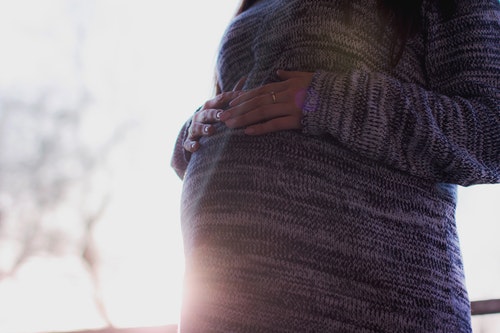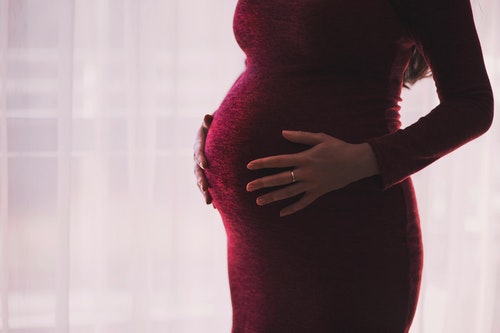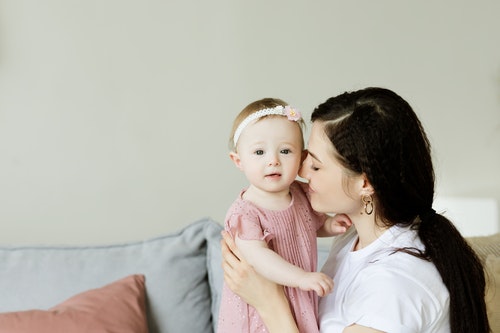Giving birth is a gift. It is indeed one of the most fascinating things in life. However, the reality of pregnancy is rarely talked about – the real deal. A lot are focusing on giving pregnancy tips, how to have a healthy pregnancy, and maintain physical health, among others. These are all important but it is also equally important to talk about the mental health of pregnant mothers.

Some women may feel anxious and stressed by the uncertainty and sensitivity of the nine-month-long pregnancy. It is common for expecting mothers to feel the pressure about parenthood and the constant reassurance of their child’s good health.
Apart from this, soon-to-be mothers face significant changes in their lives. These changes include their relationships and priorities. Lifestyles need modifications, and women’s roles in their social relationships change. Some women stop working, while some couples’ dynamics change. These changes can be overwhelming and hard to navigate.
It is estimated that 1 in 5 women develop mental health problems during and after pregnancy. Out of every 100 pregnant women, approximately 10-15 of them experience major depression and anxiety. These conditions can affect anyone, but there is an added layer of complexity in the case of pregnancy. Care, treatment, and finding solutions for these symptoms are crucial during this time.
Among the commonly diagnosed mental health issues associated with pregnancy are postpartum depression, baby blues, and postpartum psychosis. But, as a disclaimer, just because it’s unique doesn’t mean it can’t be cured.
To pave the way for appropriate health management, we must first attempt to understand the various mental health problems during pregnancy.
Postpartum means after birth, and depression is when a person experiences extreme sadness in an overwhelming amount of frequency. Postpartum happens throughout the first year after giving birth. Some postpartum depression symptoms include immense feelings of despair, sadness, and irritability.
This is different and more extreme than baby blues, a more common condition of sudden mood swings immediately after birth. Postpartum health care, a history of depression, and a family history can lead to serious consequences if you don’t treat postpartum depression properly and early on.
How Do You Know That One Has PPD?
Postpartum depression (PPD) is a serious condition that can have a profound effect on a new mother’s life. It is important to be aware of the different symptoms and signs of postpartum depression, especially if there is a family history of depression, perinatal depression, or postpartum psychosis so that you can recognize it and seek the help you need.
One of the most common signs of postpartum depression is a feeling of sadness and despair that lasts longer than the baby blues. This type of sadness may be accompanied by frequent crying, exhaustion, difficulty breastfeeding, and trouble sleeping. Other symptoms of depression, as noted by the National Institute of Health Services in the field of public health, may include feelings of guilt or worthlessness, apathy, and lack of motivation, as well as difficulty concentrating and irritability.
PPD Vs. Baby Blues
It is important to differentiate between postpartum depression and baby blues. Baby blues typically last for only a few days or weeks after delivery and do not interfere with daily life. Postpartum depression, on the other hand, is more serious and can last for months. It can affect a mother’s ability to care for her baby and make it difficult to enjoy activities she used to enjoy.
Seek Help
If you believe you are experiencing postpartum depression, it is important to reach out for help. There are many resources available to help you cope with the feelings of depression. You can seek counseling or talk therapy, join a support group for other mothers who are experiencing postpartum depression, or talk to your doctor about medication if necessary.
Remember that postpartum depression is a treatable condition, and you are not alone. With the right help and support, you can get through this difficult time and experience the joy of motherhood.
You should also remember that postpartum depression is not a sign of weakness or a lack of love for your baby. It is a real medical condition that is caused by a variety of factors, including hormonal changes, sleep deprivation, and the stresses of being a new mom.
It is important to talk to someone if you are feeling overwhelmed or depressed after giving birth. Reach out to a friend, family member, mental healthcare provider, or healthcare professional. Let them know what you are feeling and get the help you need. You don’t have to go through this alone.
There is hope for recovery from postpartum depression. With the right treatment and support, you can overcome depression and enjoy the experience of motherhood. Don’t be afraid to reach out for help and take the steps necessary to get your life back on track. You deserve to be happy and healthy.
Finally, focus on taking time for yourself. Make sure you are getting enough rest, eating healthy, and exercising regularly. Taking care of yourself is just as important as taking care of your baby. Allocating time to focus on your own needs will help you to find balance and put you in a better place to take on the challenges of motherhood.
Having a baby can be one of the most rewarding experiences of your life, but it can also be overwhelming at times. Being aware of the signs and symptoms of postpartum depression or PPD can help you to recognize it and seek the help you need to get through it. With the right support, you can overcome postpartum depression and enjoy the journey of motherhood.
If you are interested to know more, check out our FAQs below.
What Are The Causes Of PPD?
Although there are no specific causes for postpartum depression, there are a few physical and emotional reasons that can cause this issue among new mothers—first, the lack of sleep.
Sleep deprivation can cause many emotional and physical issues, and it can also impair your cognitive functions, which is why you must get enough sleep. Next are hormones; the body can drop your estrogen and progesterone levels greatly once you give birth, which can play a role in feeling postpartum depression.
Other causes can be anxiety and self-image, which are both more psychological and emotional.
What Is The Postpartum Period? How Long Does It Last?
The postpartum period can be categorized into three unique stages. The first stage is the initial or acute phase, usually around six to twelve hours after giving birth to your child. The next stage is called the postpartum period, which can last anywhere from two to six weeks. Lastly, the delayed postpartum period. This stage can last up to 6 months.
How Can You Prevent PPD?
The truth is, there is no proven way to prevent postpartum depression. However, there are several ways that you can reduce your increased risk of developing postpartum depression and protect yourself.
The first thing is to educate yourself. Ensure that you learn and understand things before it even happens to know how to handle things healthily. Make sure that you get enough sleep and that you are eating well. It is also important that you squeeze in a few minutes of exercise to help elevate your depressed mood. Make sure you take care of yourself as well.
How Bad Is PPD?
This type of depression can be stronger, and it can also last longer. Based on statistics, postpartum depression can happen after 15% of births for new moms and even moms who have given birth before. It can cause many different problems emotionally, such as severe mood swings, exhaustion, and even a feeling of hopelessness.
This can make it difficult to take care of a baby, and there are cases where it can even lead to the child’s death. So, it is important to make sure that you take care of yourself while taking care of the baby.
What Should You Not Do After Giving Birth?
You can find many different things about what to do before giving birth, but not much is found about what not to do after giving birth. Since your body has just gone through an extreme experience, it is important to take care of it afterward.
Do not ignore any signs of discomfort. Go straight to your doctor. Make sure that you do not deprive yourself of care or help. Your priority is yourself, so you can take care of your baby.
How Do I Stay Intimate After Having A Baby?
For many women, sex drives can return after one to three months. So unless your doctor advises you against it, you can go back to getting into it when you feel ready. Make sure that you talk to your partner and that you both know what is going on.
Communication will always be key in any relationship, so you have to talk about it no matter what it is. Sex can change after giving birth, but it is important to talk and figure out what both of you want to happen.
Why Does Lochia Smell So Bad?
The lochia consists of many different things, such as blood, bacteria, urine, and mucus. This is the first stage after giving birth, so do not be alarmed if you feel like you have changes in your vagina. It can have a stale odor like menstrual discharge.
So you have to stay calm and make sure that you ask your doctor what is best to do to give yourself relief. Do not be ashamed to ask for help from your doctor when you need help.
How Do You Know When Lochia Is Finished?
The lochia should stop around four to six weeks after giving birth, but it can also be earlier, depending on your body and pregnancy. When it is almost over, when the discharge is mostly white blood cells, you will know which helped your uterus heal after you have given birth. This usually happens during the final stages, which are referred to as the lochia alba.
How Can My Tummy Become Flat Postpartum?
Belly fat is normal, especially after giving birth, but if you want to have a flat tummy even after delivery well, the best thing to do is exercise. Getting the exercise you need and eating healthy can help you get back to your pre-pregnancy weight and body after only a few months. Make sure that you are taking good care of your body before, during, and after the pregnancy.
What Are The Three Different Types Of Lochia?
Lochia is normal for any woman who has recently given birth. The lochia goes through three different stages. There are three types of lochia with different stages happening at different times.
For type 1, we start with Rubra, then serosa, and finally alba. Type 2 is rubra followed by serosa and then alba sequenced with prolonged rubra phase and finally short serosa and rubra phases. Type 3 is rubra, then serosa or alba then rubra again and the serosa/alba sequence again but this time with equal duration.

How Soon Can You Take A Bath Postpartum?
Make sure that you do not take a bath after three days of giving birth. Also, make sure that you do not use any essential oils or bubble baths. You can always take a shower to soothe your breasts if needed, but you have to refrain from bathing for at least three days after delivery.
Is It Normal For Lochia To Turn Red Again?
Lochia can last up to six weeks or even longer. You do not have to worry, as this is also normal. If your lochia turns back into a darker red shade, then it might be a sign that you need to take a step back and slow down a bit.
However, if you still experience spotting after a few days of relaxation, you need to consult with your doctor or your midwife. You mustn’t ignore these things because they may cause you a lot of harm if you let them slide.
Why Do I Have Postpartum White Discharge?
This white discharge can be the final stage of lochia, which is lochia alba. This usually is a yellowish-white color. This discharge can last up to 6 weeks after birth. It will contain many fewer red blood cells because these are usually the white blood cells that have helped your body heal after the delivery.
How Do You Pee Postpartum?
You must pee at regular times throughout the day. However, if peeing becomes difficult for you or starts to sting, what you could do is pour warm water over your perineum, or you could also try to pee while in the shower. This will hopefully help soothe the pain and make it easier to pee.
Why Do You Have To Wait 40 Days After Giving Birth or Postpartum?
After you give birth and after your placenta comes out, you have to wait at least three weeks so that you give your body enough time to heal. What happens in your body is your blood cells will naturally close up the wounds that have been left by the placenta.
They do by blood clotting, and your vessels will eventually shrink, but again, this process can take a lot of time, so be patient and let your body heal.
Conclusion
In this article, we learned that pregnancy could also be extremely complex, as beautiful as it is. It is a process where two lives are at stake, both of the baby and the mother. However, as we found out, pregnancy goes way beyond that. As a new life starts, the mother also enters a new life.
These changes can bring forth discomfort and unsettling feelings, not just physically but psychologically as well. With this, expecting mothers can also experience postpartum depression or mental health problems, such as anxiety and depression, and bipolar disorder. Although pregnancy makes it more difficult to deal with, these mental health issues are not impossible to cure or handle.

Specifically, we talked about some of the most pressing questions about postpartum depression. We lightly discussed how postpartum progress, the signs and symptoms, risk factors, and how to prevent it. We mentioned how women could remain active, not just physically but also in other aspects, like intimacy. Some of these aspects are the source of mental illness or instability among mothers.
Apart from that, we just touched on a few other questions about postpartum conditions. We talked about lochia, the dos, and don’ts after giving birth, like taking a bath, peeing, discharge, etc.
In the general sense, we found out that postpartum can be non-salient as the common baby blues. Postpartum depression can be feelings of unsettledness, anxiety, extreme sadness, and irritability. These symptoms are common postpartum. But it may be more serious if it occurs at intense levels on most days.
Postpartum is a progressive condition if not appropriately attended to. It can affect a woman’s normal functioning, and it can even put the baby’s life in danger.
Although there are still no identified direct causes for postpartum depression, there are ways to prevent it from happening. Many of these tips circle around maintaining good physical and mental health, like getting enough sleep, physical exercise, and a balanced diet.
After birth, we also learned that women must also continue to take care of themselves. Women should be knowledgeable and should have strong support to cope with life’s changes after birth.